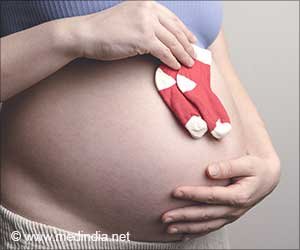1 In 5 Women Conceive Naturally After Having a Baby With Fertility Treatment

They found that at least one in five women conceived naturally after having had a baby using fertility treatment such as IVF mostly within 3 years. This figure remained unchanged, even when taking into account the different types and outcomes of fertility treatment – alongside the length of follow-up.
Infertility is defined by the failure to achieve a pregnancy after 12 months or more of regular unprotected sexual intercourse, and it is estimated to affect 1 in 7 heterosexual couples (1✔ ✔Trusted Source
Diagnosis and Management of Infertility
Go to source
).
Advertisement
However, not all women seeking and undergoing fertility treatment are absolutely or permanently infertile. And half of the couples who struggle to conceive naturally in the first year of trying will go on to do so in the second year.
How Many Women Get Pregnant Naturally After IVF?
Although it is typically considered ‘rare’ for a woman to get pregnant naturally, if she has previously had fertility treatment, the researchers want to highlight how it is not, in fact, an unusual event. The team considers the findings to be particularly important, as many women may not realize that they could conceive naturally following fertility treatment (2✔ ✔Trusted Source
How common is natural conception in women who have had a livebirth via assisted reproductive technology? Systematic review and meta-analysis
Go to source
).
These findings suggest that natural pregnancy after having a baby by IVF is far from rare. This is in contrast with widely held views – by women and health professionals – and those commonly expressed in the media, that it is a highly unlikely event.
Much has changed since the early days of IVF and it is now used for a wide range of causes of infertility, including cases where no cause is ever found. In addition, some women may not have experienced infertility at all but used treatment for other reasons.
This could include single women using donor sperm, women in same-sex relationships, surrogates, or those seeking to screen for serious genetic conditions. So, it is important for those who have had successful IVF to know how likely they are to conceive naturally afterward.
Chance of Natural Birth After IVF: What to Expect
IVF was first used in 1978 and now, more than 10 million babies worldwide have been born using the treatment – equating to between 1% and 6% of all babies born per year in the developed world by 2020. To track the data more accurately and analyze which factors make natural pregnancy after having a baby by fertility treatment more likely, the researchers are calling for linked national data sets (3✔ ✔Trusted Source
A short history of in vitro fertilization (IVF)
Go to source
).
They hope that this information could then be used to counsel people considering their options after successful fertility treatment. Knowing what is possible would empower women to plan their families and make informed choices regarding further fertility treatment and/or contraception.
The included studies were mostly of moderate quality and varied widely by geography, cause of subfertility, type, and outcome of fertility treatment, and length of follow up making direct comparisons difficult.
References :
- Diagnosis and Management of Infertility
– (https://jamanetwork.com/journals/jama/article-abstract/2781637) - How common is natural conception in women who have had a livebirth via assisted reproductive technology? Systematic review and meta-analysis
– (https://academic.oup.com/humrep/advance-article/doi/10.1093/humrep/dead121/7202394) - A short history of in vitro fertilization (IVF) – (https://ijdb.ehu.eus/article/180364mj)
Source: Eurekalert
Source link
#Women #Conceive #Naturally #Baby #Fertility #Treatment



